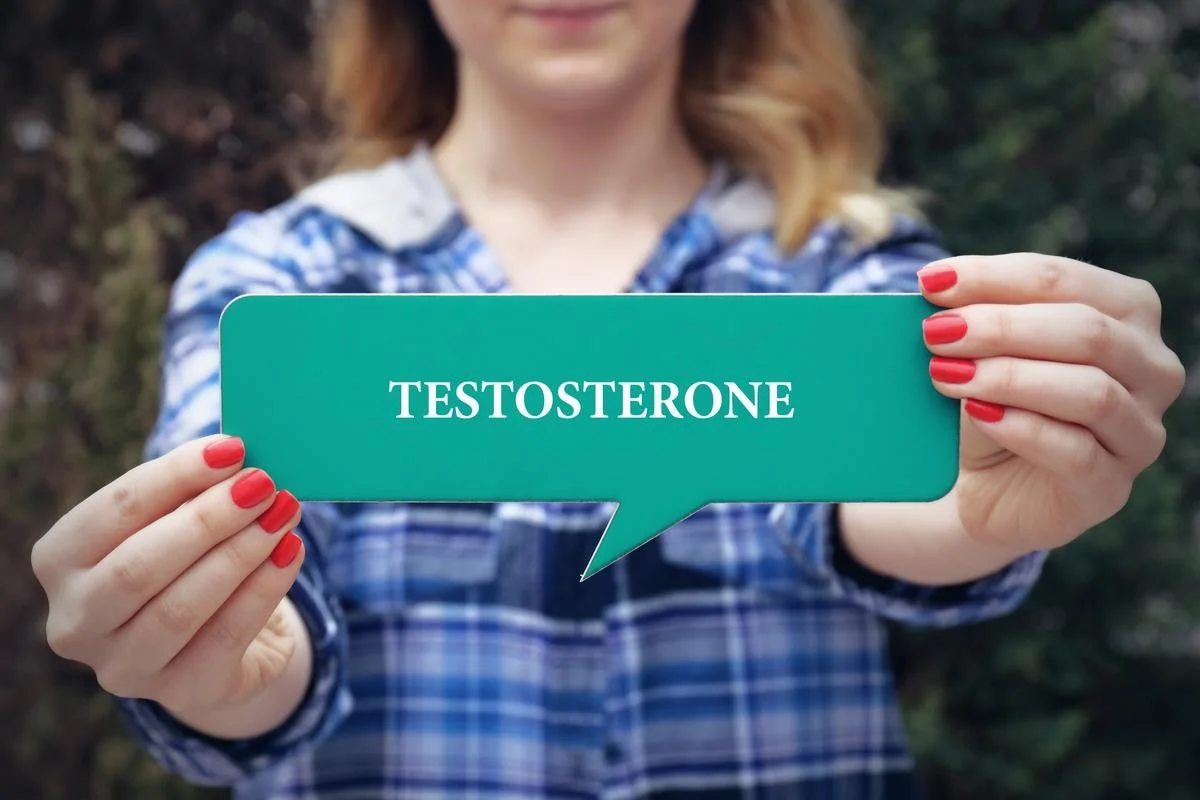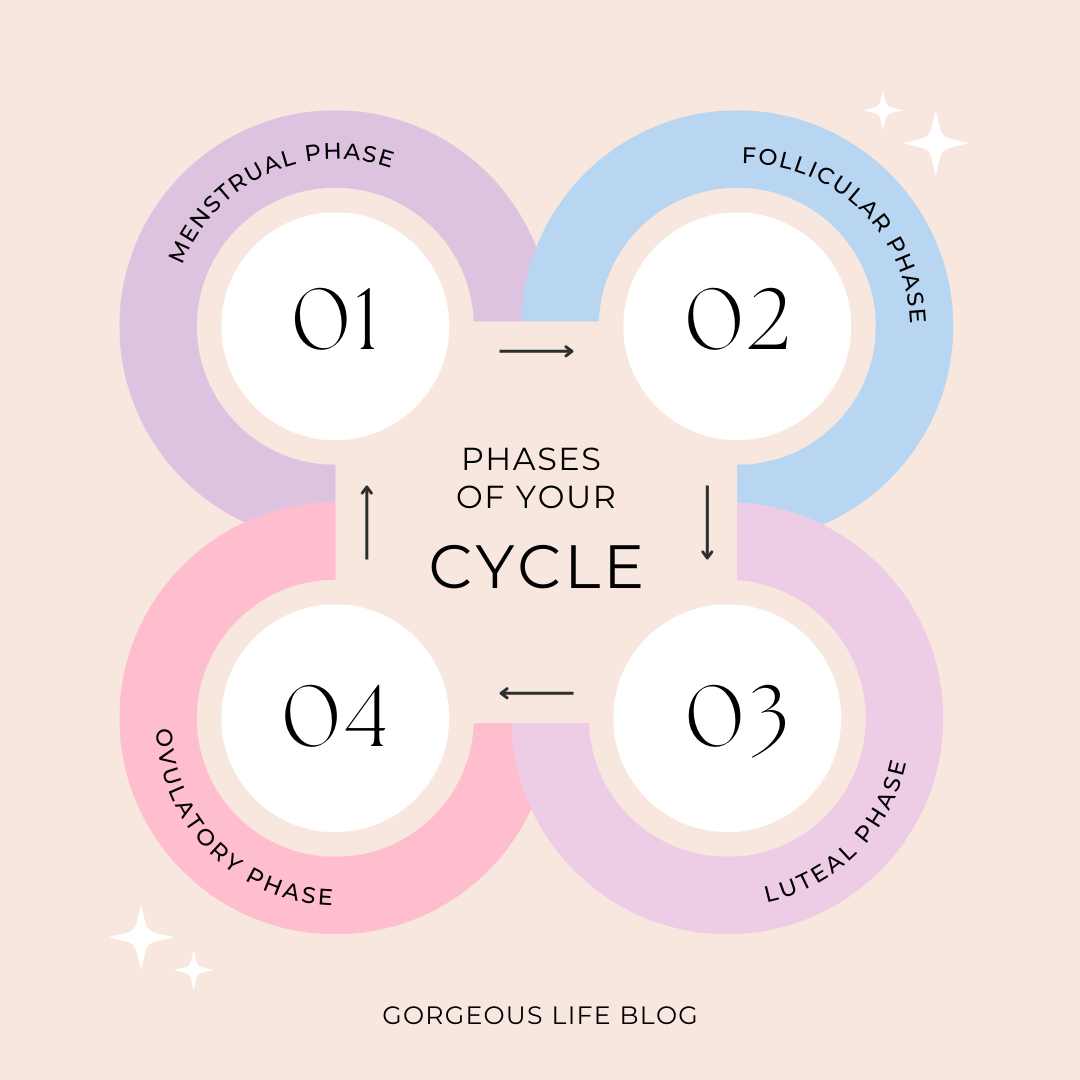Table of Contents
Understanding Testosterone Deficiency in Women:
Testosterone, a hormone often associated with men, plays a crucial role in maintaining various aspects of women’s health. While women produce significantly lower levels of testosterone than men, this hormone is still vital for a variety of functions including libido, energy, mood regulation, muscle mass, and bone density. When testosterone levels drop below normal, women can experience a variety of symptoms that may negatively impact their quality of life.
While testosterone deficiency is most commonly associated with aging, it can also occur at younger ages due to medical conditions, stress, or medications. Many women may not recognize the signs of testosterone deficiency because the symptoms overlap with those of other health issues. In this article, we will explore the causes of testosterone deficiency in women, how it affects their physical and emotional health, and discuss various treatment options, including hormone replacement therapy (HRT) and natural methods to boost testosterone levels.
What is Testosterone Deficiency in Women?
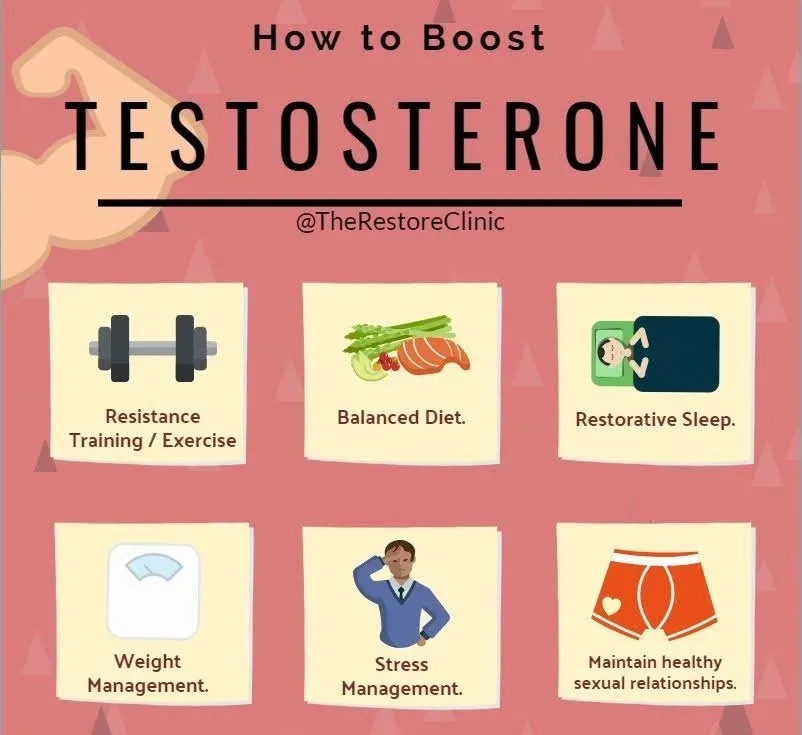
Testosterone is a key hormone responsible for many critical bodily functions. While often considered a “male hormone,” women produce testosterone in their ovaries, adrenal glands, and other tissues. Testosterone helps regulate libido, bone density, muscle mass, and overall energy levels. When testosterone levels fall below normal, women may begin to experience symptoms that affect their physical and mental health.
Testosterone deficiency occurs when a woman’s body produces an insufficient amount of testosterone. It can cause a variety of physical and emotional changes that interfere with daily life. The most common time that testosterone levels drop is during menopause, but women can experience low testosterone at any stage of life. Recognizing testosterone deficiency early is critical for addressing the symptoms before they negatively impact a woman’s health and quality of life.
The Importance of Testosterone in Women’s Health
Although testosterone is often thought of as a male hormone, it plays an equally vital role in women’s health. Women typically produce much lower levels of testosterone than men, but the hormone is essential for several functions:
- Libido: Testosterone plays a key role in sexual desire. Low testosterone is one of the leading causes of reduced libido in women.
- Muscle Mass and Strength: Testosterone helps maintain muscle mass, strength, and tone. Low testosterone may lead to muscle weakness and difficulty in maintaining physical fitness.
- Bone Density: Testosterone is involved in maintaining bone strength and density. When testosterone levels decline, women are at an increased risk for osteoporosis and fractures.
- Mood Regulation: Testosterone helps regulate mood and cognitive function. Low levels can result in mood swings, anxiety, and depression.
- Energy and Stamina: Testosterone contributes to overall energy levels and stamina. Low levels often lead to fatigue and a decrease in vitality.
Understanding how testosterone impacts women’s health highlights why it is essential to maintain healthy testosterone levels throughout life.
Common Causes of Testosterone Deficiency in Women
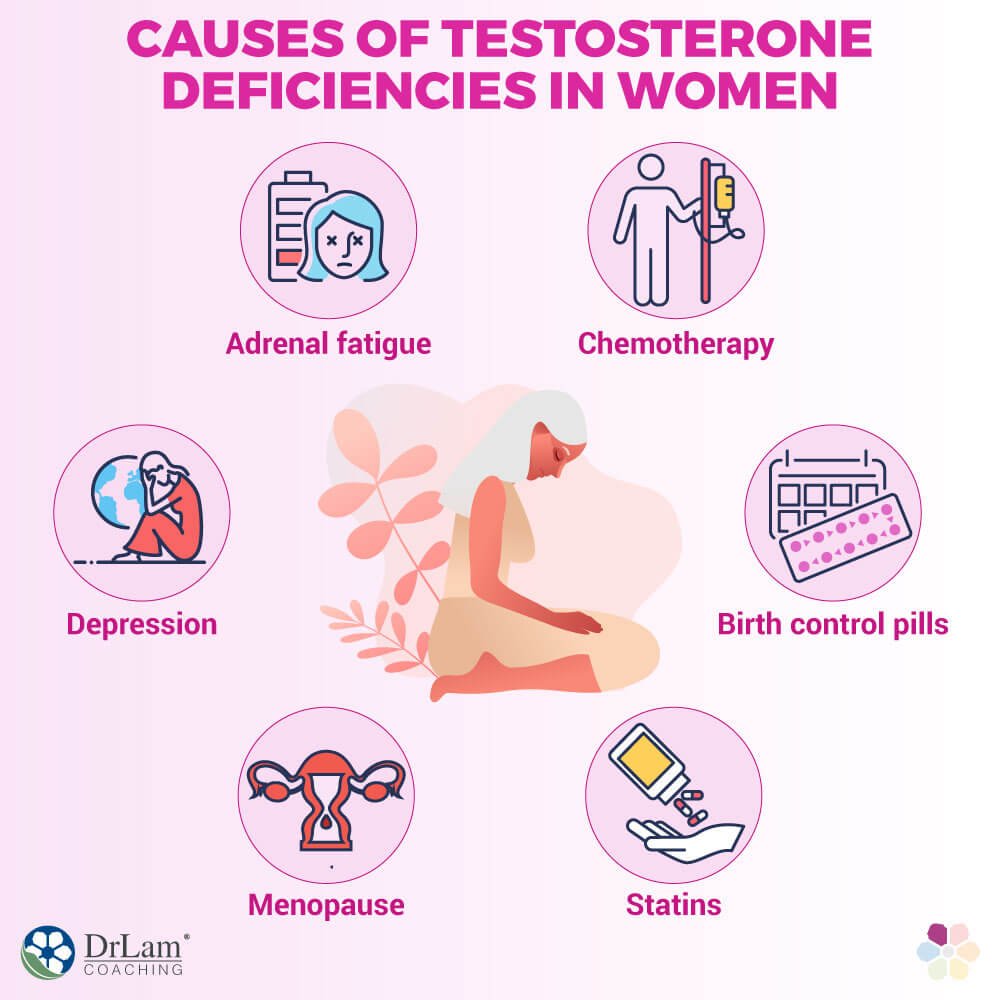
There are several factors that can contribute to testosterone deficiency in women. These include hormonal changes due to aging, certain medical conditions, medication use, and lifestyle factors. Understanding these causes can help women recognize when they may be experiencing testosterone deficiency and take action.
1. Menopause and Perimenopause
As women approach menopause, testosterone levels naturally begin to decline. Menopause marks the end of a woman’s menstrual cycle, and with it, a significant reduction in estrogen and testosterone production by the ovaries. Perimenopause, the transitional phase leading up to menopause, is characterized by fluctuating hormone levels, including testosterone.
During perimenopause and menopause, women may experience a range of symptoms related to declining testosterone levels, such as:
- Reduced libido
- Fatigue
- Mood swings
- Vaginal dryness
- Hot flashes
Although estrogen tends to receive more attention during menopause, testosterone is just as crucial for maintaining sexual function and overall vitality. Hormonal changes can also affect sleep patterns, cognitive function, and emotional well-being, making it essential for women to monitor their hormone levels during this time.
Healthline provides valuable information on menopause and how hormonal changes affect women. Understanding the role of testosterone during menopause is vital for managing symptoms effectively.
2. Ovarian Disorders
Ovarian disorders like polycystic ovary syndrome (PCOS) and ovarian failure can also disrupt testosterone production. In PCOS, women often experience an imbalance of sex hormones, including increased levels of androgens such as testosterone. This can lead to symptoms such as excessive hair growth, acne, and irregular periods. While higher testosterone is more commonly associated with PCOS, some women with the condition may also experience testosterone deficiency, leading to symptoms such as fatigue, low sexual desire, and difficulty losing weight.
Ovarian failure occurs when the ovaries cease functioning prematurely, often before the age of 40. This can result in a significant decline in testosterone levels and lead to menopause-like symptoms, including hot flashes, vaginal dryness, and decreased libido. Women with ovarian failure may also experience the physical and emotional symptoms associated with low testosterone.
For more information on PCOS and how it affects hormone levels, check out our article on PCOS: Understanding Symptoms and Effective Treatments.
3. Chronic Illnesses and Medications
Certain chronic conditions can interfere with testosterone production, leading to low testosterone levels. Conditions such as diabetes, hypothyroidism, autoimmune diseases, and chronic kidney disease can impact the body’s ability to produce and regulate testosterone. Similarly, medications used to manage these conditions, such as birth control pills, antidepressants, and corticosteroids, can also contribute to lower testosterone levels.
Medications like birth control pills suppress ovulation, which can lead to reduced testosterone production in women. Anti-depressants, especially selective serotonin reuptake inhibitors (SSRIs), can also have a negative impact on testosterone levels. If you’re taking any medications and suspect that they are contributing to low testosterone, it’s important to discuss this with your healthcare provider.
4. Adrenal Fatigue
The adrenal glands, which are located above the kidneys, produce several hormones, including testosterone. When a woman is under prolonged stress, her adrenal glands may become overworked, leading to adrenal fatigue. This can result in a decrease in testosterone levels, contributing to symptoms such as chronic fatigue, low libido, mood swings, and muscle weakness.
Chronic stress can lead to an imbalance in hormones, including a reduction in testosterone production. Managing stress through relaxation techniques like yoga, meditation, and mindfulness can help support adrenal health and improve testosterone levels.
Symptoms of Low Testosterone in Women
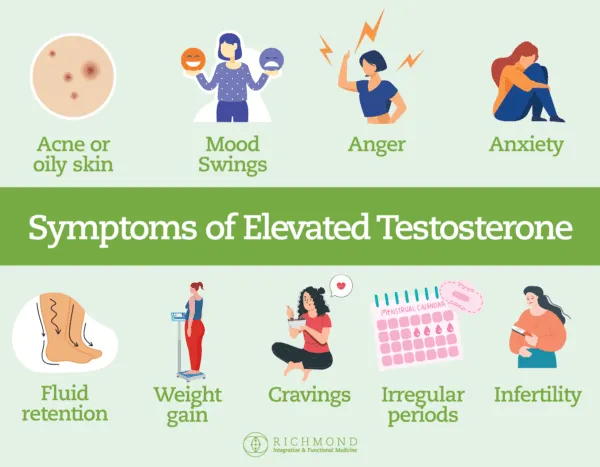
Testosterone deficiency can have a profound impact on various aspects of a woman’s physical and emotional health. While the symptoms may vary depending on the severity of the deficiency, the most common symptoms of low testosterone in women include:
1. Low Libido (Sexual Desire)
Testosterone is a key hormone in regulating sexual desire. Women with low testosterone often experience a noticeable decrease in libido. This loss of sexual desire can strain relationships and negatively affect self-esteem. Women may also experience vaginal dryness and discomfort during intercourse, which can further reduce sexual satisfaction.
2. Fatigue and Low Energy
Low testosterone levels can lead to extreme fatigue and low energy. Women with low testosterone often report feeling tired, even after a full night’s rest. This fatigue can make it difficult to stay active and motivated, contributing to a lack of physical activity and further exacerbating feelings of low energy.
3. Mood Changes
Testosterone helps regulate mood and emotional stability. When testosterone levels drop, women may experience symptoms such as irritability, anxiety, and depression. Some women may also feel a lack of motivation, sadness, or difficulty coping with stress. These emotional changes can negatively impact overall well-being and quality of life.
4. Decreased Muscle Mass and Strength
Testosterone is responsible for maintaining muscle mass and strength. When testosterone levels decline, women may notice a reduction in muscle tone and strength. This can lead to difficulty building muscle, increased body fat, and a higher risk of injury. Women may find it harder to perform physical tasks and may experience a sluggish metabolism.
5. Bone Density Loss
Testosterone plays a vital role in maintaining bone density and preventing osteoporosis. Women with low testosterone are at increased risk of developing bone density loss, which can lead to conditions like osteopenia or osteoporosis. A decline in bone density increases the risk of fractures and bone-related injuries.
6. Memory Issues and Brain Fog
Testosterone has an impact on cognitive function. Low testosterone levels can lead to memory issues, brain fog, and difficulty concentrating. Women may experience problems with focus, memory recall, and overall cognitive performance. This can affect both personal and professional life, leading to frustration and a sense of mental fatigue.
How Low Testosterone Affects Women’s Health
The symptoms of testosterone deficiency are not just limited to physical health; they also significantly affect emotional and mental well-being. Let’s take a closer look at how low testosterone can impact various aspects of women’s health:
1. Impact on Libido and Sexual Health
Testosterone plays a crucial role in sexual health. A drop in testosterone levels can lead to a noticeable decrease in libido, causing a lack of sexual interest and vaginal dryness. These issues can strain intimate relationships and lower self-esteem. Low testosterone levels can also contribute to difficulty achieving orgasm and reduced sexual satisfaction.
2. Mood and Mental Well-Being
Testosterone influences mood regulation. A deficiency in this hormone can lead to irritability, depression, anxiety, and a general sense of being “down.” Women may find it challenging to stay motivated or optimistic. The drop in testosterone can lead to a sense of emotional instability, making it harder to cope with life’s stressors.
3. Energy Levels and Fatigue
Fatigue is one of the most common symptoms of testosterone deficiency. Women with low testosterone often feel drained, even after sleeping for long periods. They may struggle to complete everyday tasks and find it difficult to maintain a regular exercise routine. This low energy can further contribute to feelings of depression and poor mental health.
4. Muscle Mass and Strength
Testosterone helps maintain muscle mass and strength. Low levels of this hormone can lead to muscle weakness, reduced endurance, and difficulty building muscle. Women with low testosterone may notice a decrease in muscle tone, which can affect their ability to perform physical activities or engage in regular exercise.
Treatment Options for Testosterone Deficiency in Women
While testosterone deficiency can significantly impact women’s health, there are various treatment options available to help restore balance. The most common treatment options include hormone replacement therapy (HRT), lifestyle changes, and natural methods to boost testosterone levels.
1. Hormone Replacement Therapy (HRT)
Hormone replacement therapy (HRT) is one of the most common treatments for low testosterone in women. This therapy involves replenishing the body’s testosterone levels through various forms, such as topical gels, creams, patches, or injections. HRT can help alleviate symptoms such as low libido, fatigue, mood swings, and muscle weakness.
However, it is important to discuss the benefits and risks of HRT with your healthcare provider. Long-term use of HRT can lead to potential side effects, including an increased risk of blood clots and breast cancer. Therefore, it’s essential to tailor HRT to each individual’s needs and monitor its effects regularly.
Harvard Health provides a thorough overview of hormone replacement therapy and its role in managing menopause-related symptoms.
2. Natural Methods to Boost Testosterone
In addition to HRT, women can implement several natural strategies to help boost testosterone levels. These methods support hormone balance and may help alleviate symptoms of low testosterone.
- Exercise: Regular strength training and high-intensity interval training (HIIT) can stimulate testosterone production and improve overall health. Strength training, in particular, has been shown to increase muscle mass and strength, leading to improved testosterone levels.
- Diet: A balanced diet that includes healthy fats (such as omega-3 fatty acids), lean proteins, and complex carbohydrates can support healthy testosterone production. Nutrients like zinc, magnesium, and vitamin D play a vital role in testosterone synthesis.
- Stress Management: Chronic stress can elevate cortisol levels, which in turn may reduce testosterone production. Practices such as yoga, meditation, and deep breathing exercises can help manage stress and promote hormonal balance.
- Sleep: Getting adequate rest is crucial for hormone production. Aim for 7-9 hours of quality sleep each night to optimize testosterone levels.
3. Alternative Therapies
Some women may benefit from alternative therapies, such as acupuncture or herbal treatments. Fenugreek and ashwagandha are two herbs that have been shown to have a positive impact on testosterone levels. However, these should be used under the guidance of a healthcare provider to ensure they are safe and effective.
Conclusion: Managing Testosterone Deficiency with Confidence
Testosterone deficiency in women can significantly affect various aspects of health, from sexual desire to emotional well-being and physical strength. Recognizing the signs of testosterone deficiency and seeking appropriate treatment is crucial for improving overall health and quality of life.
Whether through hormone replacement therapy or natural methods like exercise and diet, there are several options available to help restore balance and alleviate symptoms. If you suspect that you have low testosterone, it’s important to speak with a healthcare provider to discuss treatment options and find a plan that works for you.
Frequently Asked Questions (FAQs)
1. What are the signs of low testosterone in women?
Signs of low testosterone in women include low libido, fatigue, mood swings, decreased muscle mass, bone density loss, and difficulty concentrating. If you experience these symptoms, it’s important to discuss them with your healthcare provider.
2. How is testosterone deficiency diagnosed?
Testosterone deficiency is diagnosed through blood tests that measure testosterone levels. A healthcare provider may also consider symptoms, medical history, and other tests to rule out underlying conditions.
3. Can lifestyle changes help boost testosterone levels naturally?
Yes, lifestyle changes like regular exercise, stress management, a balanced diet, and adequate sleep can help boost testosterone levels naturally. These changes can complement medical treatments and improve overall health.
4. Are there risks associated with hormone replacement therapy (HRT)?
Yes, HRT can have risks, such as increasing the risk of blood clots, breast cancer, and heart disease. It is essential to discuss the potential benefits and risks with your healthcare provider to determine if HRT is suitable for you.
5. Can testosterone therapy improve sexual health?
Yes, testosterone therapy can help restore libido and sexual function in women with low testosterone levels. It can also alleviate symptoms such as vaginal dryness and discomfort during intercourse.

